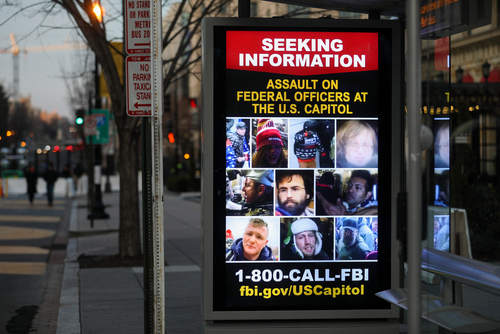
In a recent display of political activism, approximately 50 individuals were arrested for staging an illegal demonstration inside the Dirksen Senate Office Building, specifically targeting the Senate cafeteria with their protest. This group, vocal in their opposition to Israel's policies, brought the cafeteria operations to a halt, chanting slogans and demanding action from the Senate on several fronts related to the Israel-Palestine conflict.
The protestors, with hands painted in faux blood, made dramatic demands including the endorsement of a ceasefire, the restoration of UNRWA funding, and an immediate cessation of military aid to Israel. Their chants of "Senate can't eat until Gaza eats!" echoed through the halls, underscoring their message with a direct appeal to the consciences of those within the Capitol.
I’m facing up to 3 years in prison for exactly what anti-Israel protestors did today inside the Capitol.
They haven’t been charged with:
-Obstruction
-Entering a restricted area
-Parading, picketing on Capitol groundsAm I missing something? pic.twitter.com/DXAiPi15Rt
— David Medina 🦫🇺🇸 (@davidmedinaofa) April 9, 2024
This event has sparked a debate on the nature of protest and dissent within the context of democratic institutions. The U.S. Capitol Police's response, charging the demonstrators with Crowding, Obstructing, or Incommoding under D.C. Code § 22–1307, highlights the legal boundaries set against such forms of protest within Congressional Buildings.
Interestingly, the protest has received public and vocal praise from controversial figures such as Hezbollah leader Hassan Nasrallah, further complicating the narrative around the motivations and implications of this act of civil disobedience. Nasrallah's recent threats towards Lebanese Christians add a layer of international political intrigue to the incident.
CAPITOL INSURRECTION:
Pro-Palestine protestors have stormed the Capitol basement and are marching and chanting, trying to disrupt the government.
By the Democrat's definition, this is an INSURRECTION!pic.twitter.com/KAp6OcXrcV
— Anthony Hughes (@CallMeAntwan) April 9, 2024
Among the arrested were activists from Christians for a Free Palestine and notable figures like Susie Benjamin of Code Pink, known for her advocacy on behalf of Palestinian causes. This diverse coalition of protestors represents a broad spectrum of concern for the humanitarian situation in Gaza, albeit expressed through a method that has led to legal repercussions.
The question of how these protestors will be treated by the justice system looms large, especially in comparison to defendants from other high-profile protests and insurrections. The legal and societal outcomes of this demonstration could set precedents for future acts of political expression within the United States.
As the dust settles on this incident, the broader implications for U.S. foreign policy, the right to protest, and the dynamics of Israeli-Palestinian relations remain to be seen. What is clear, however, is that the intersection of domestic protest and international politics continues to be a complex and contentious arena.
In conclusion, this episode in the Senate cafeteria is more than just a momentary disruption; it is a reflection of the deeply held beliefs and passions that drive individuals to action. Whether one agrees with their methods or not, the impact of their protest on the national conversation about Israel and Palestine is undeniable.
Do you think they should be sent to prison like January 6th protestors?
We want to hear from you! Please share your perspective by commenting below.












